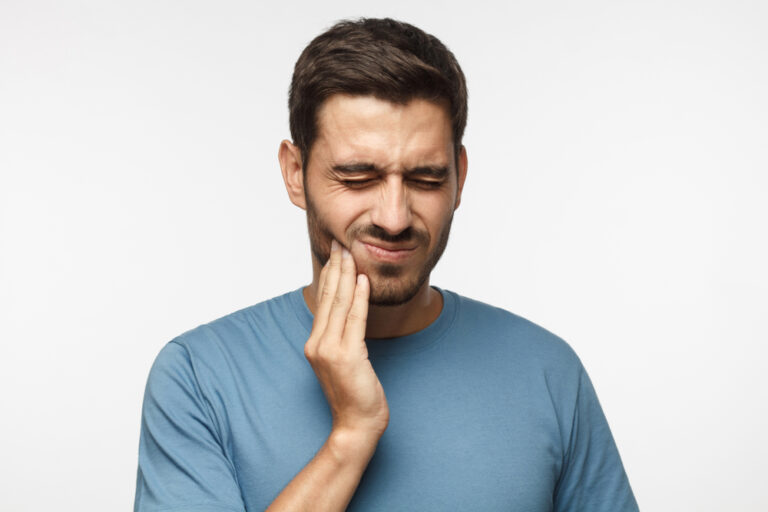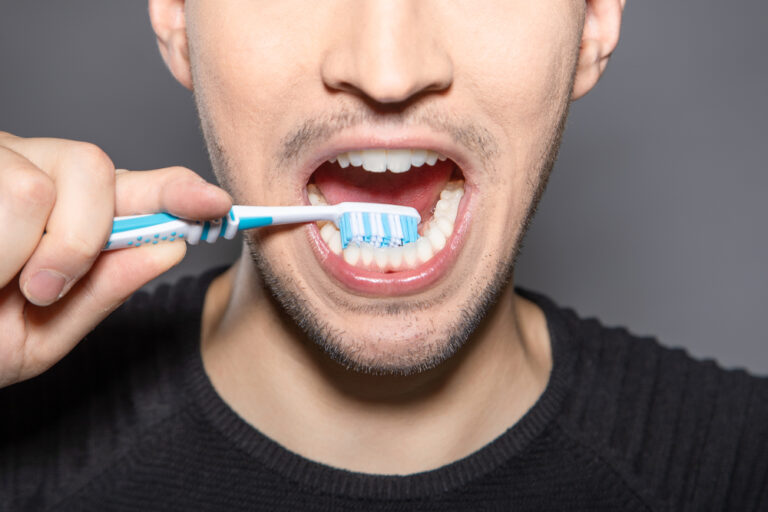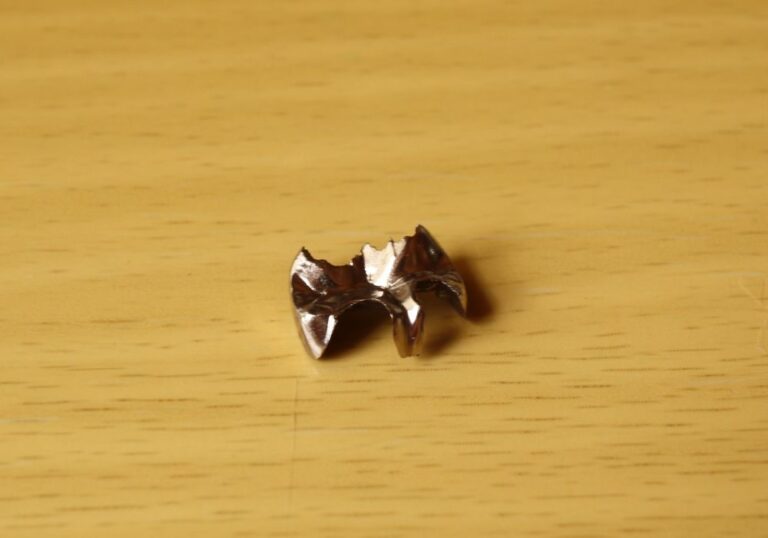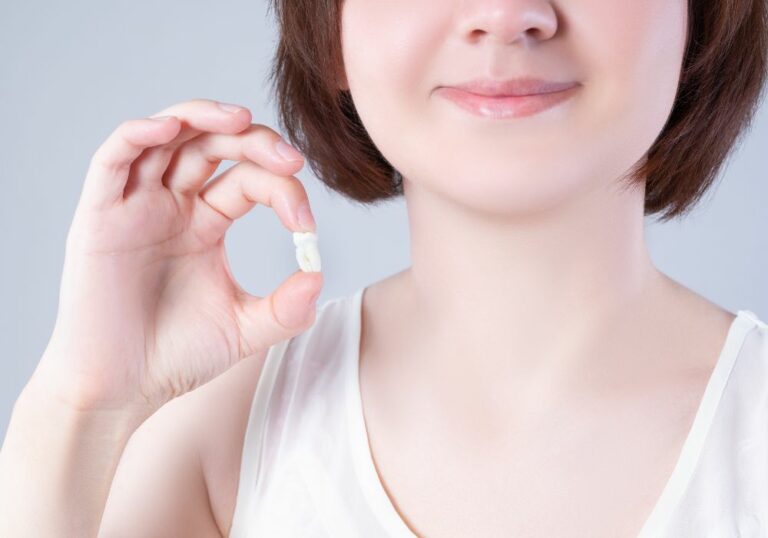If you have recently undergone teeth whitening treatment, you may be wondering how long you need to wait before eating colored foods again. It’s important to avoid certain foods and drinks immediately after the treatment to prevent staining and ensure the best possible results. But once the initial waiting period is over, you may be eager to return to your normal diet.
According to dental professionals, you should wait at least 48 hours after teeth whitening before consuming dark-pigmented foods and drinks, such as coffee, red wine, and tomato-based sauces. This is because your tooth enamel is more porous after the treatment and more vulnerable to stains. Waiting a few days allows your saliva to remineralize your teeth and make them strong again. In the meantime, stick to gentle foods that are soft and light in color to avoid any potential damage to your newly whitened teeth.
It’s also important to note that some dental professionals may recommend refraining from consuming stained foods for up to two weeks after teeth whitening. This can vary depending on the type of treatment you received and your individual circumstances. Be sure to follow your dentist’s specific instructions and ask any questions you may have about post-treatment care. By following these guidelines, you can enjoy a bright, healthy smile for longer.
Understanding Teeth Whitening
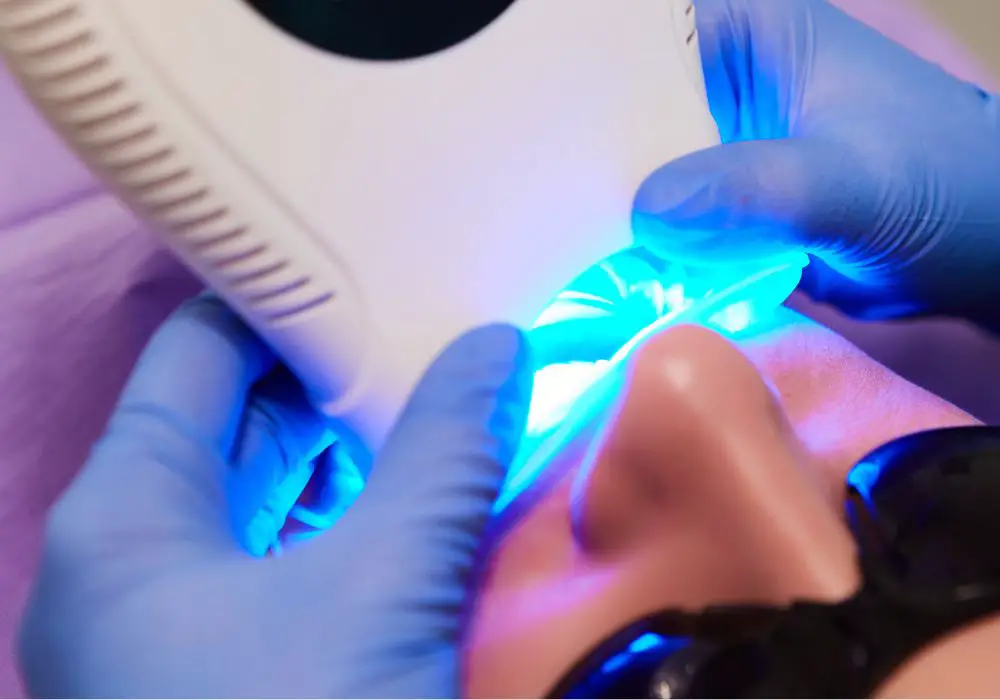
Teeth whitening is a cosmetic dental procedure that lightens the color of your teeth. It is a popular way to improve the appearance of your smile. Teeth whitening can be done in a dental office or at home using over-the-counter products.
Process of Teeth Whitening
The process of teeth whitening involves the use of a bleaching agent, usually hydrogen peroxide or carbamide peroxide, to break down the stains on the surface of your teeth. The bleaching agent is applied to your teeth using a tray or a strip. The length of time the tray or strip is worn depends on the strength of the bleaching agent and the desired level of whitening.
In-office teeth whitening typically involves the use of a high-concentration bleaching gel, which is applied to your teeth by a dental professional. The gel is activated by a special light, and the process takes about an hour.
At-home teeth whitening kits usually involve the use of a lower concentration bleaching gel, which is applied to your teeth using a tray or strip. The process can take anywhere from a few days to a few weeks, depending on the strength of the bleaching agent and the desired level of whitening.
Impact on Tooth Enamel
Teeth whitening can have an impact on your tooth enamel. The bleaching agent can cause temporary tooth sensitivity and irritation of the gums. Overuse of teeth whitening products can also cause permanent damage to your tooth enamel.
It is important to follow the instructions provided with your teeth whitening product and to talk to your dentist before beginning any teeth whitening treatment. Your dentist can help you determine the best course of action for achieving a brighter, healthier smile.
Colored Food and Teeth Whitening
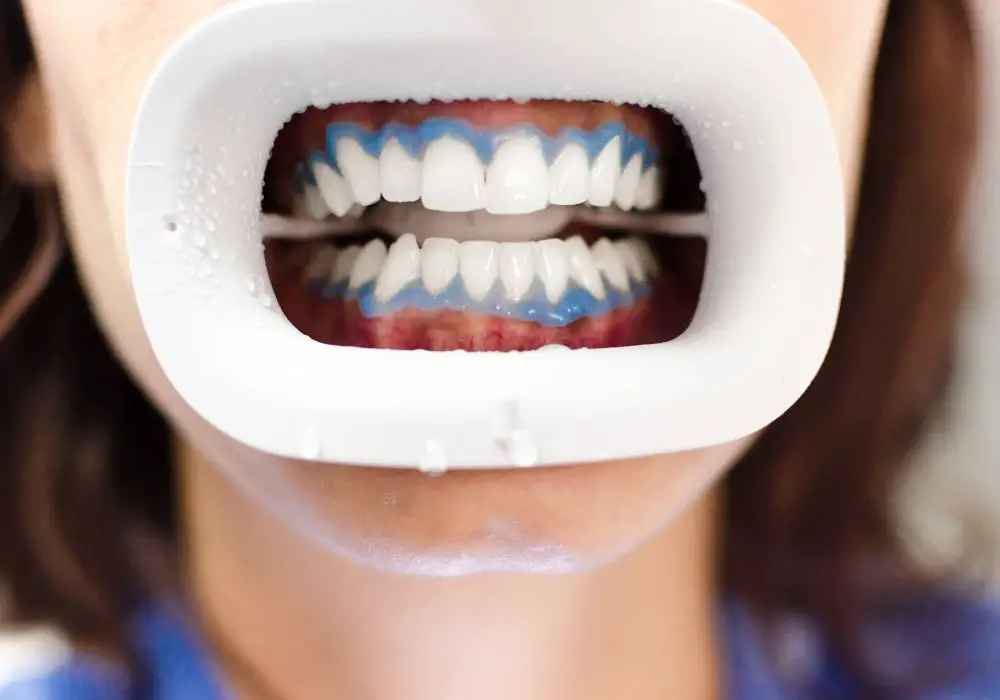
If you have recently undergone teeth whitening treatment, you might be wondering how long you should wait before consuming colored food. Here are some things to keep in mind:
Effects of Colored Food
Colored food and drinks such as coffee, red wine, and dark sauces can cause staining on your newly whitened teeth. This is because the enamel of your teeth is more porous and vulnerable to stains immediately after the treatment. Consuming colored food too soon after the treatment can undo the effects of your teeth whitening.
Recommended Time to Wait
It is recommended that you wait at least 48 hours before consuming colored food and drinks after your teeth whitening treatment. During this time, your saliva will remineralize your teeth and make them stronger again. Consuming gentle foods that are soft and light in color is the best option during this time.
After 48 hours, you can gradually start to reintroduce colored food and drinks back into your diet. However, it is still recommended that you avoid consuming dark-colored food and drinks for the first few days after the treatment.
Here are some examples of colored food and drinks that you should avoid immediately after teeth whitening:
- Coffee
- Red wine
- Dark sauces (e.g. soy sauce, tomato-based sauces)
- Berries
- Beets
By following these guidelines, you can ensure that you get the most out of your teeth whitening treatment and maintain your newly whitened smile for as long as possible.
Tips to Maintain Whitened Teeth
After undergoing teeth whitening, it is important to take proper care of your teeth to maintain the results. Here are some tips to help you maintain your whitened teeth:
Dietary Recommendations
To maintain your white teeth, it is important to be mindful of what you eat and drink. Some foods and drinks can cause staining and discoloration, undoing the effects of your teeth whitening treatment. Here are some dietary recommendations to follow:
- Avoid dark-colored foods and drinks: Dark-colored foods and drinks like coffee, tea, red wine, and berries can stain your teeth. It is best to avoid them altogether or consume them in moderation.
- Stick to white and light-colored foods: After teeth whitening, it is recommended to follow the “White Diet,” which consists of white and light-colored foods and drinks. These include chicken, fish, rice, cauliflower, bananas, and milk.
- Use a straw: When drinking beverages like coffee, tea, or soda, use a straw to minimize contact with your teeth.
Oral Hygiene Post Teeth Whitening
Good oral hygiene is essential to maintain the results of your teeth whitening treatment. Here are some tips to follow:
- Brush and floss regularly: Brush your teeth twice a day and floss at least once a day to remove any food particles and plaque that can cause staining and discoloration.
- Use a whitening toothpaste: Use a whitening toothpaste to help maintain the whiteness of your teeth.
- Rinse your mouth after eating or drinking: Rinse your mouth with water after consuming food or drinks that can cause staining.
- Avoid smoking: Smoking can cause significant staining and discoloration of your teeth. It is best to avoid smoking altogether to maintain the results of your teeth whitening treatment.
By following these tips, you can maintain the results of your teeth whitening treatment and keep your smile looking bright and healthy.
Professional Advice
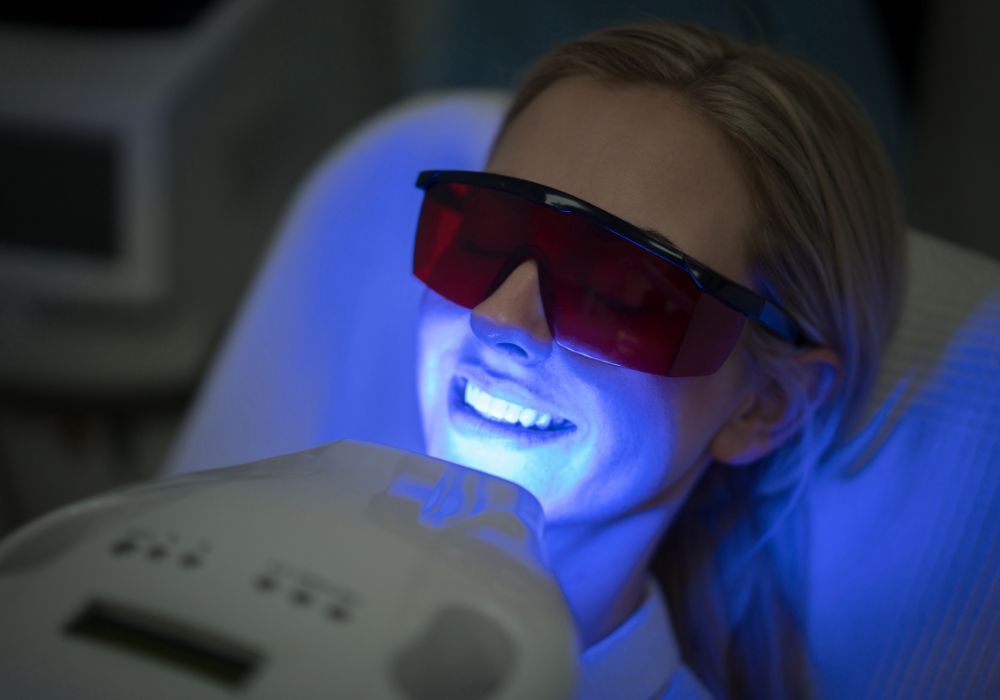
When it comes to teeth whitening, it is always best to consult with your dentist beforehand to determine if it is the right option for you. Your dentist can provide you with guidance on the best teeth whitening treatments and products that will work for your specific needs.
Consultation with Dentist
During your consultation with your dentist, they will examine your teeth to determine if you have any underlying dental issues that may affect the outcome of your teeth whitening treatment. They will also provide you with instructions on how to prepare for your treatment and what to expect during and after the procedure.
Your dentist may also recommend a specific post-whitening diet to follow, which may include avoiding certain foods and drinks for a certain amount of time to ensure the best results.
Regular Dental Check-ups
After your teeth whitening treatment, it is important to continue to schedule regular dental check-ups with your dentist. Regular check-ups will allow your dentist to monitor the health of your teeth and ensure that your teeth whitening treatment has not caused any damage.
Your dentist may also recommend touch-up treatments to maintain the brightness of your teeth over time. It is important to follow their recommendations to ensure that your teeth remain healthy and white.
In summary, consulting with your dentist and scheduling regular dental check-ups are important steps to ensure the best results from your teeth whitening treatment. Following your dentist’s recommendations and instructions will help you maintain a healthy and bright smile.
Frequently Asked Questions
How long should I wait before eating colored food after teeth whitening?
It is recommended that you wait at least 48 hours before consuming any colored food or beverages after teeth whitening. This includes foods and drinks that are known to stain teeth, such as coffee, tea, red wine, and dark-colored sodas.
What foods should I avoid after teeth whitening?
In addition to colored foods and beverages, you should also avoid acidic and sugary foods and drinks. These can weaken the enamel on your teeth and make them more susceptible to staining. Examples of acidic foods and drinks include citrus fruits, tomatoes, vinegar, and carbonated beverages.
Can I eat chicken after teeth whitening?
Yes, you can eat chicken after teeth whitening. In fact, white meat is a good choice because it is low in color and less likely to stain your teeth. Just be sure to avoid any sauces or marinades that may contain dark-colored ingredients.
Is it safe to eat pizza after teeth whitening?
Pizza can be consumed after teeth whitening, but it is important to be mindful of the toppings. Tomato sauce and other dark-colored toppings can stain your teeth, so it is best to stick with lighter options like cheese or vegetables.
How long after teeth whitening can I eat crunchy foods?
It is recommended that you wait at least 24 hours before eating crunchy or hard foods after teeth whitening. This includes foods like nuts, chips, and crackers. Crunchy foods can be abrasive and may cause sensitivity or irritation to your teeth.
Can I eat spicy food after teeth whitening?
Spicy foods can be consumed after teeth whitening, but it is important to be mindful of any sauces or ingredients that may contain dark colors. Additionally, spicy foods can sometimes cause sensitivity or discomfort in your teeth, so it is best to start with small amounts and gradually increase as tolerated.


